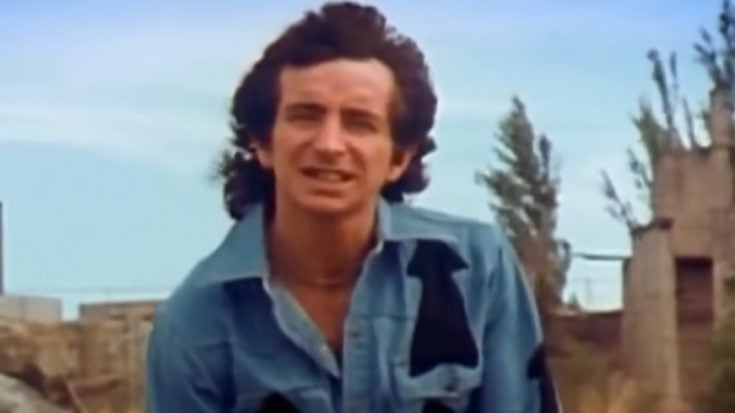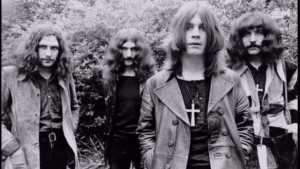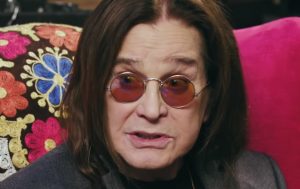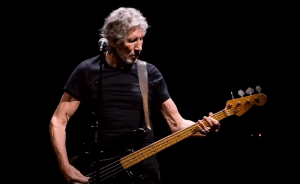Legendary Musicians That Suddenly Passed Away In The 80s

Bon Scott for the Jailbreak music video - Cristi Vasile / Youtube
The 1980s pulsated with vibrant music. Synths buzzed, hairspray flowed freely, and catchy melodies lodged themselves firmly in our brains. From pop icons like Michael Jackson to the quirky brilliance of Devo, the decade offered something for everyone.
Even the most bizarre ideas, like a Taco singing about putting on the Ritz, found massive success. Even established giants like the Rolling Stones weren’t afraid to reinvent themselves. It was a time of boundless creativity and pure musical joy.
But amidst the neon glow, there was a shadow. The 80s also witnessed the tragic loss of several talented musicians. Some were legends whose legacies were already secure, while others were just beginning their ascent.
All left a void in the music world, leaving us to wonder what incredible music they might have created if fate hadn’t intervened. This article remembers those fallen stars, the brilliant musicians we lost in the 1980s.
Bon Scott
AC/DC may have taken the US by storm with “Highway to Hell”, but in their native Australia, they were already kings. Their electrifying live shows were fueled by the Young brothers’ scorching guitars and the electrifying presence of frontman Bon Scott. Born for the stage, Scott thrived on the energy of the crowd. However, fame’s double-edged sword began to weigh heavily on him.
Feeling isolated despite his success, Scott turned to alcohol. His friends described a growing sense of disillusionment, a feeling of achieving his dreams only to find them hollow. This ultimately led to his tragic death in 1980. AC/DC would continue to soar with Brian Johnson, but Scott’s legacy and influence on the band remain undeniable.
John Bonham
After leaving the Yardbirds, Jimmy Page sought a new project. He assembled John Paul Jones and Robert Plant, then set his sights on John Bonham, a powerhouse drummer on the local scene. Initially hesitant to give up his bricklaying job, Bonham eventually joined, solidifying the lineup of Led Zeppelin.
Led Zeppelin dominated the 70s, influencing rock, metal, and prog. However, by the 80s, the pressures of fame and relentless touring took their toll on Bonham. His physically demanding style and the strain of being in a global band wore him down. Tragically, in 1980, Bonham passed away, leaving a void in the music world and marking the end of Led Zeppelin’s reign.
John Lennon
John Lennon, a name synonymous with the Beatles, built a successful solo career that mirrored his own personality – multifaceted, passionate, and deeply personal. His music ranged from tender ballads to scathing social commentary, often reflecting his tumultuous life. He even took a five-year break from music after the birth of his son, Sean.
In 1980, Lennon reemerged with the critically acclaimed Double Fantasy, featuring love songs dedicated to his wife Yoko Ono. Tragically, this comeback was cut short. Just three weeks after the album’s release, John Lennon was murdered outside his New York City apartment. In his final interview, he spoke optimistically about the 80s, highlighting the power we have to shape our world.
https://twitter.com/honey_firefly/status/1118937371280642048
Bob Marley
Bob Marley stands as reggae’s undisputed king. Pioneering a sound that transcended borders, he churned out classic albums with the Wailers (later the I-Threes) throughout the 70s and 80s. His influence stretched far beyond music, as he became a powerful advocate for Rastafari, his religious faith.
Marley’s music conquered the UK, packing arenas with devoted fans. The US was next, with a major tour planned for 1980. Tragically, this dream ended too short. While jogging in Central Park, Marley collapsed. Cancer, stemming from an old injury, had spread throughout his body. He passed away in 1981, leaving a legacy as an international icon who brought reggae to the global stage.
Randy Rhoads
Ozzy Osbourne’s solo career got a reluctant start in the late 70s. His label insisted on a band, but Ozzy already had a bassist and believed his friend Randy Rhoads was the perfect guitarist. After some convincing, Rhoads auditioned, and Osbourne was blown away by his talent. Rhoads’ skill redefined rock guitar for many.
Tragically, Randy Rhoads’ career ended too early. In 1982, during a tour stop in Florida, the band’s bus driver convinced Rhoads to take a joyride in a small plane. The plane crashed, killing everyone on board. The music world lost a rising star who had already influenced countless guitarists and promised so much more.
Karen Carpenter
Karen Carpenter, one half of the iconic Carpenters duo, remains a household name. Her crystal-clear vocals propelled the siblings to superstardom in the 70s, with countless top 10 hits. Tragically, her life ended in 1983 by complications from anorexia. While her death raised awareness of eating disorders, Karen’s true passion resided behind the drum kit.
Many only recognize Karen as a singer, but she was a phenomenal drummer, inspired by legends like Ringo Starr. Her talent was undeniable, with Buddy Rich himself calling her a favorite. Karen rarely took center stage, but a dazzling drum solo from a 1976 TV special has become a YouTube sensation. Percussionist Sheila E. even cites Karen as her inspiration, highlighting her powerful and technical drumming style.
Marvin Gaye
Marvin Gaye’s career soared in the 60s and 70s. Hits like “How Sweet It Is” and the iconic “What’s Going On” cemented him as a legend. However, by the late 70s, personal struggles like drug use and a bitter divorce took their toll. He relocated to Europe and a 1981 comeback faltered.
Hope returned in 1982 with the album Midnight Love and its smash hit “Sexual Healing”. Tragically, this comeback didn’t prosper for long. In 1984, an argument with his father turned deadly. Marvin Gaye was shot and killed, leaving the music world heartbroken and wondering what musical brilliance might have been lost.
Cliff Burton
Metallica’s early sound was a masterclass in thrash metal, defined by aggression and breakneck tempos. While the band’s core members were undeniably skilled, bassist Cliff Burton was a true innovator. He pushed the boundaries of heavy metal bass playing, redefining its role in the genre.
Tragedy struck during their European tour for Master of Puppets. Their bus skidded on black ice, flipping over. Burton, having switched bunks with another member, was thrown from the vehicle and fatally crushed. Metallica continued with replacement bassists, but fans will always wonder what incredible music could have been made with Burton’s groundbreaking talent.
https://twitter.com/ReturnofR/status/1223300316562673664
Peter Tosh
Peter Tosh, alongside Bob Marley, helped shape the sound of reggae. His masterful guitar work and songwriting prowess were a cornerstone of the Wailers in their early years. He began exploring solo ventures in the early 70s, and by 1975 went fully independent. Songs like “Legalize It” became anthems, spreading reggae’s message and social commentary globally.
Tragically, Tosh’s life and flourishing career ended too soon. In 1987, he was shot and killed during a robbery attempt. His final album, No Nuclear War, released near the time of his death, became a powerful statement and earned him a posthumous Grammy.
Peter “Steppin Razor” Tosh.
Los Angeles.
1981.
Photograph © Lindsay Oliver Donald. pic.twitter.com/vqjYVyH7Tu— Lindsay Oliver Donald (@LOD1952) April 10, 2023
Andy Gibb
While being the younger brother of the Bee Gees might seem like a tough act to follow, Andy Gibb thrived in the late 70s disco era. Fueled by his brother Barry’s songwriting, Andy became the first artist ever to have his first three singles top the pop charts, including the iconic “I Just Want to Be Your Everything”. His good looks and charm landed him TV gigs and even a Broadway role.
Sadly, a struggle with cocaine addiction derailed his career. Though he attempted a comeback after rehab, tragedy struck in 1988. Andy Gibb passed away from a heart condition at just 30 years old, leaving a legacy of unfulfilled potential and the question of what musical heights he might have reached.
Roy Orbison
Roy Orbison’s voice was one of a kind. His career launched in the 50s with Sun Records, but truly soared in the 60s with unforgettable hits like “Oh, Pretty Woman” and “Crying”. His incredible range, from warm baritone to soaring falsetto, coupled with his songwriting skills, made him a legend, influencing artists like Elvis and the Beatles.
Orbison’s style waned in the 70s, but the 80s brought a surprising revival. David Lynch’s film Blue Velvet rekindled interest, leading Orbison to join the supergroup The Traveling Wilburys with musical giants like Bob Dylan and Tom Petty. Their debut album was a smash hit, and Orbison even released his own acclaimed album, Mystery Girl. Unfortunately, Orbison passed away from a heart attack in 1988 at the age of 52, leaving behind a legacy of a powerful voice and an unfulfilled promise of a remarkable comeback.
Paul C. McKasty
Paul McKasty, or “Paul C” as he was known in the industry, was on the cusp of superstardom in 1989. The 24-year-old producer and engineer had just overseen hit singles for Biz Markie and Queen Latifah. His true innovation, however, lay in his mastery of the Emu SP-1200 sampler.
This groundbreaking tool allowed Paul C to craft unique, organic-sounding hip-hop beats using chopped samples. He mentored future legends like Large Professor and Pete Rock, shaping the soundscape of rap’s golden age. Tragically, Paul C’s meteoric rise was ended in an abrupt manner in 1989 when he was murdered in his home. His death left the music world wondering what incredible beats this young genius might have created.











